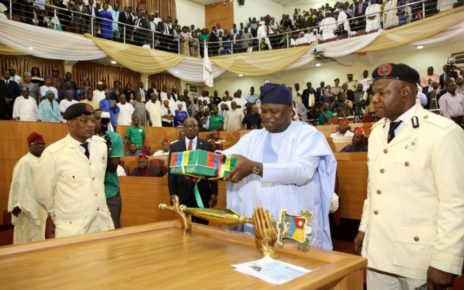The Lagos Chamber of Commerce and Industry (LCCI) has advised the Federal Government to frontally tackle the challenge of fuel scarcity in the country in order to sustain the positive trajectory in the nation’s economy and create enabling environment for national development.
The President of the organized private sector (OPS) group, Dr. Michael Olawale-Cole, in a statement described the news about the importation of contaminated fuel and subsequent recall of same came to Nigerians as a rude shock as Nigerians had trusted that there was a fuel importation system that could not be compromised in the manner it happened last week.
The Chamber noted that the development was disappointing, risky, and calls for immediate overhaul of our import processes and systems to forestall any chance of future occurrence.
According to the group, following the mix-up, there have been reported cases of damages to vehicles across the country before the adulterated fuel was withdrawn. One cannot imagine the danger this portends if it had happened or should happen with aviation fuels for our airlines.
The LCCI pointed out that beyond the rhetoric of accusations and denials by the parties involved, there was a need to conduct an extensive and conclusive investigation to unravel the circumstances that led to the compromised importation.
It stated that the results of the investigations should point to actionable penalties for all parties involved to serve as a deterrent against future occurrences.
The Chamber advised: “We also urge the government to conduct an audit of the current processes towards having a standardized system that meets international best practice. These are necessary to forestall future occurrences and boost the integrity of our importation processes.
“However, the most sustainable solution to curtail these hazards and perpetually remove the burden of fuel subsidy is to have our domestic refineries in operation to refine our crude oil for local consumption and for export to boost our foreign exchange earnings.
“As always emphasized by the Chamber, the government is expected to create an enabling environment where private refineries can thrive. Let us imagine that Nigeria will save about N6 trillion a year from fuel subsidies if we refine our crude and not accommodating any landing costs as the case presently.
“This figure represents about 50% of our expenditures (when you add the recent proposed N2.56 trillion supplementary budget to cover six months fuel subsidy) in the 2022 Federal Government Budget.
“We urge the Federal Government, therefore, to draw the courage of taking these necessary steps towards lessening the burden of consumption subsidies and investing more to boost our productive capacities.
“Beyond politics, the Federal Government should consider the economics of refurbishing and maintaining existing refineries to take a decisive action on whether to own the refineries or involve the private sector in their management for profitability and sustainability.
“The Government may need to consider a joint venture model of the kind with Nigeria Liquefied Natural Gas where government holds 49% and private sector 51% for the refineries. As at end of 2020, the NLNG raked in revenue worth $114bn, paid $9bn in taxes, and $18bn in dividends to the Federal Government. This model can be replicated with the refineries. A 100% ownership and management by the government is not advised”, the OPS group added.




